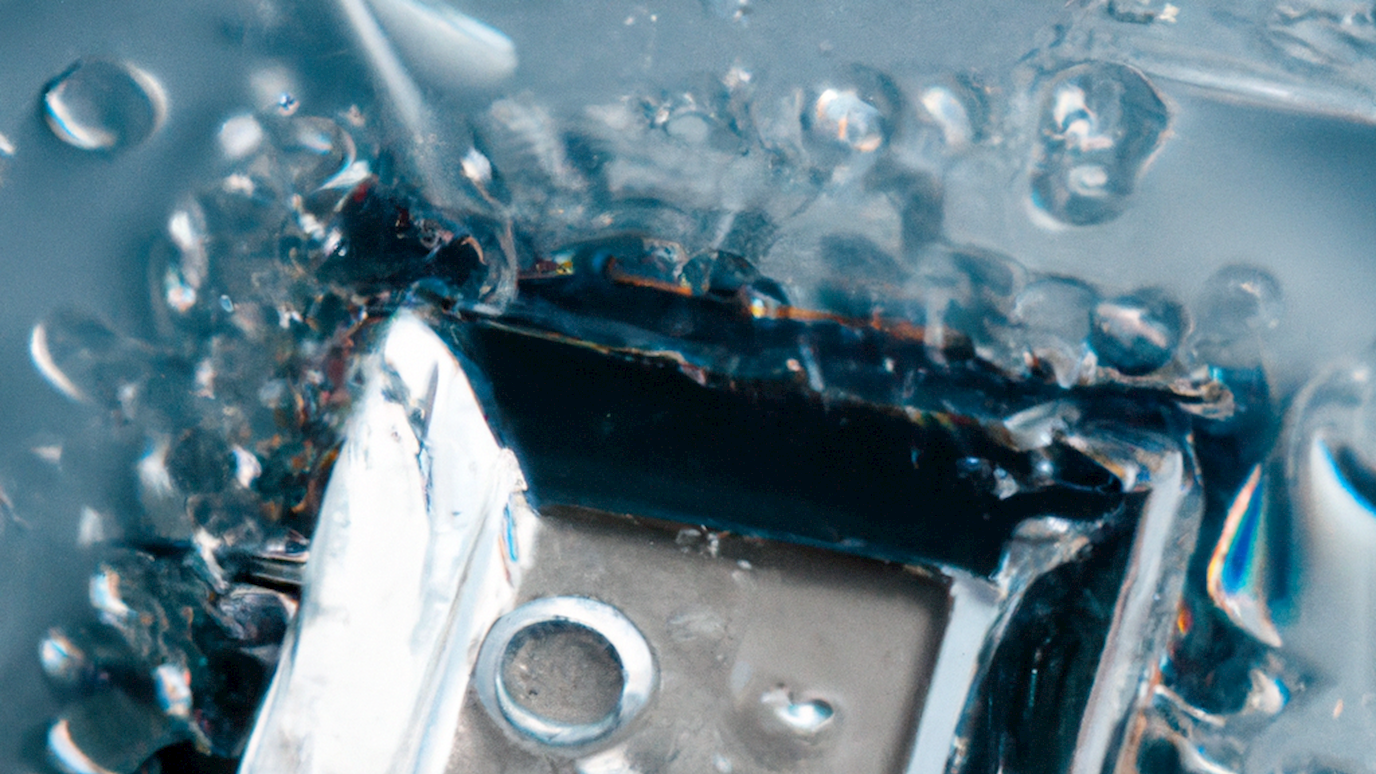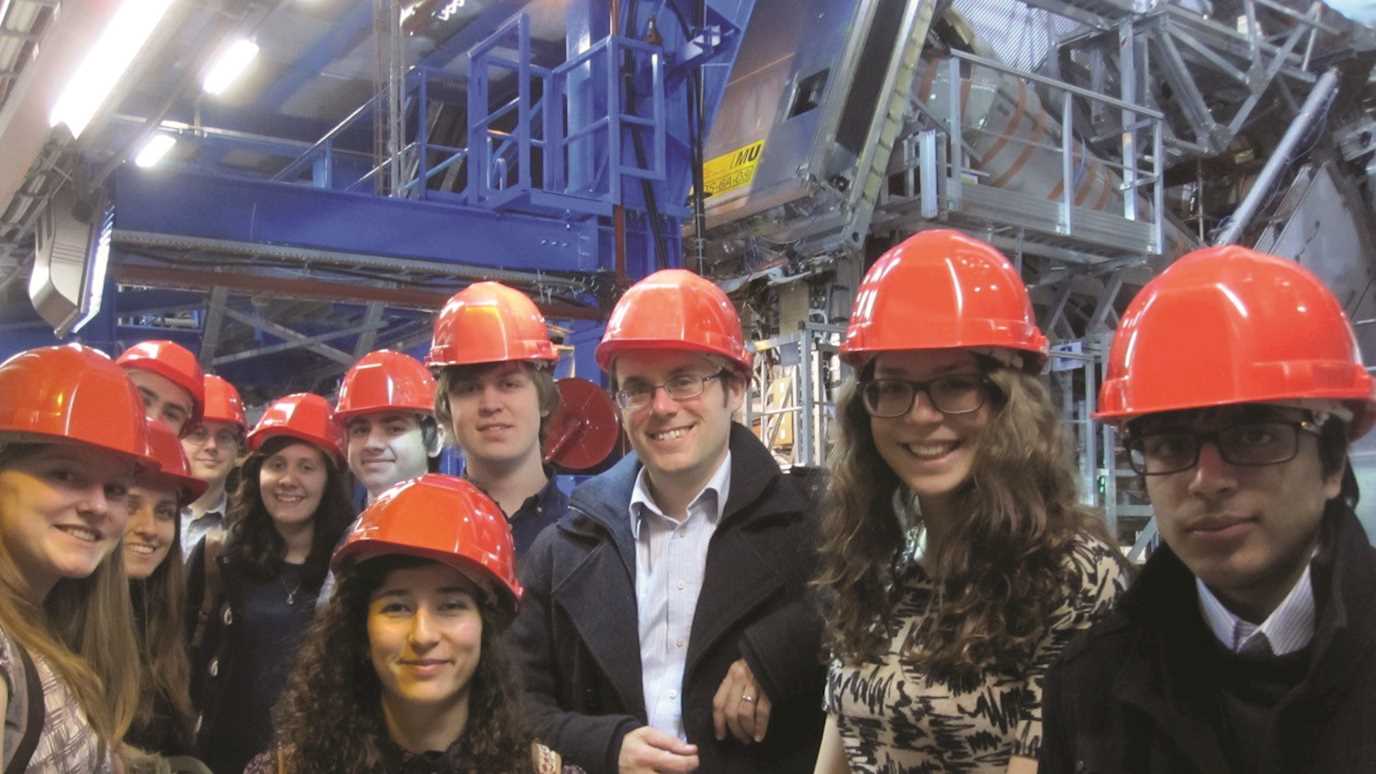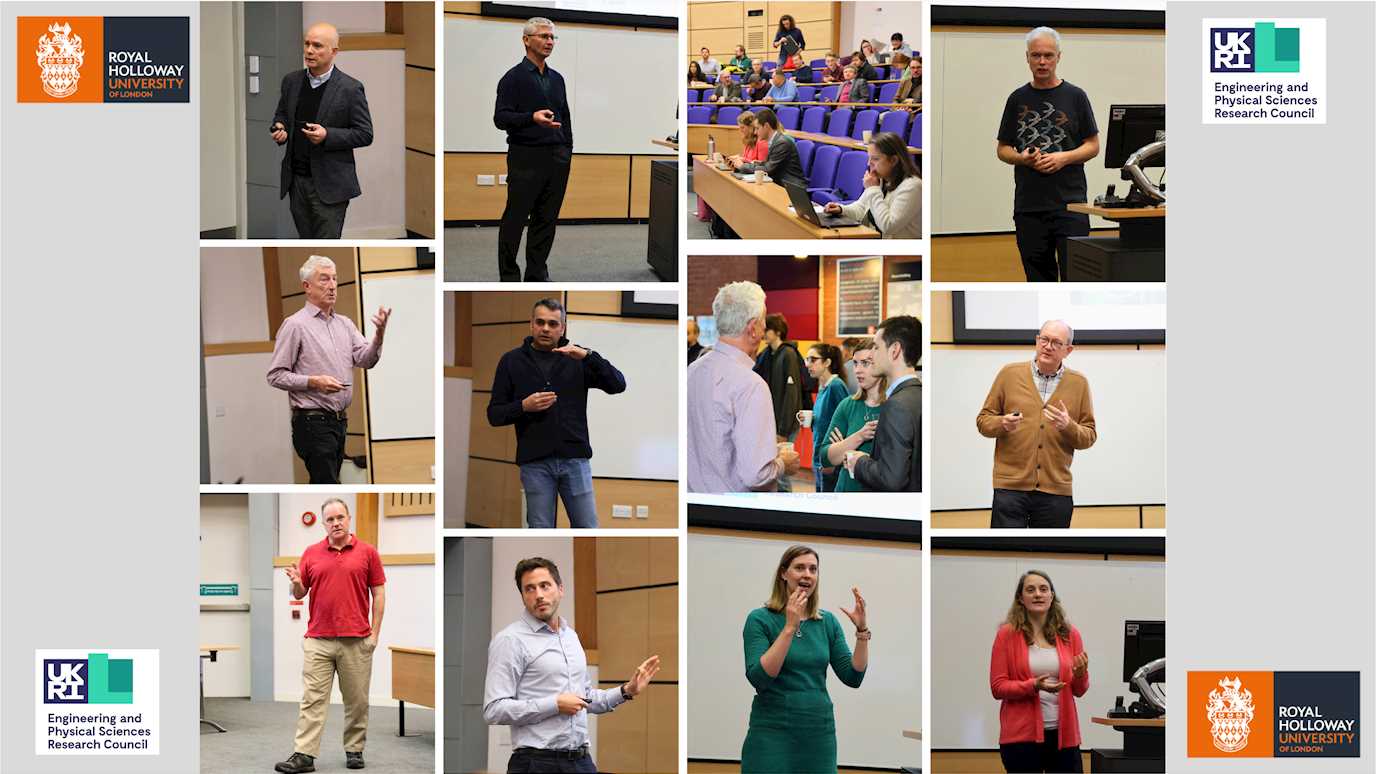New cooling technology developed for quantum computing circuits.

Typical superconducting quantum circuits, such as qubits – basic processing units of a quantum computer, must be operated at very low temperatures, of a few 10’s of milli-kelvin, or hundredth’s of a degree from absolute zero temperature. These temperatures are today easily accessible in modern refrigerators. However, the intrinsic temperature of devices turns out to be much higher because the materials required to make good qubit circuits are by their nature very poor thermal conductors. This thermalisation problem becomes more and more acute as the scale and complexity of circuits grow.
Much like water (or liquid nitrogen) cooling is sometimes used to effectively cool down high-performance digital computers, a quantum computer could benefit from similar liquid cooling. But at the very low temperatures that quantum circuits operate, most liquids will have turned into ice. Only two isotopes of Helium, Helium-3 and Helium-4, remain in the liquid form at milli-kelvin temperatures.
In recent work published in Nature Communications, researchers from the National Physical Laboratory, Royal Holloway University of London, Chalmers University of Technology and Google developed new technology to cool down a quantum circuit to less than a thousand of a degree above absolute zero, almost 100 times lower temperature than achieved before. This was made possible by immersing the circuit in liquid 3He, chosen for its superior thermal properties.
Remarkably, the researchers observed that 3He couples very strongly to atomic-scale defects in the quantum circuit material and takes away excess energy from these defects over 1000 times faster compared to when 3He is not present. Crucially, at the same time the 3He does not directly interfere with the circuit itself. Furthermore, the research showed that the noise in the present experiment was also reduced more than 1000 times at the lowest temperatures using 3He immersion, compared to extrapolated theoretical predictions.
This mechanism, when optimised, has the potential to improve coherence of quantum circuits significantly. In particular, it may be able to fundamentally change the behaviour of the noisy environment, silence it and improve coherence of the circuits even further. The noise and energy losses caused by these material defects is currently the main obstacle the field is facing towards scaling to practical quantum computers.
“Improving the coherence that is spoiled by material defects is the biggest challenge quantum computing is facing to scale up and build practical quantum computers. Going to these extremely low temperatures allows us to study the fundamental physics of quantum circuits in greater detail, and we’re hopeful that the knowledge obtained in this way will help us improve the coherence of the circuits also when operated at the easily achievable temperatures of 10’s of mK in typical refrigerators used today.”, said NPL’s Sebastian de Graaf.
“Cooling devices down to ultra-low temperatures is a significant technological challenge. In the present study we have solved many technical challenges to reach this goal, and our results demonstrate the benefits of doing so on the performance of the circuits. Moreover, we are confident this technology can be scaled up to immersion-cool much larger quantum circuits to benefit future quantum computing developments ”, said Professor John Saunders, director of the London Low Temperature Laboratory at Royal Holloway University of London.
Read the research in full here.
























